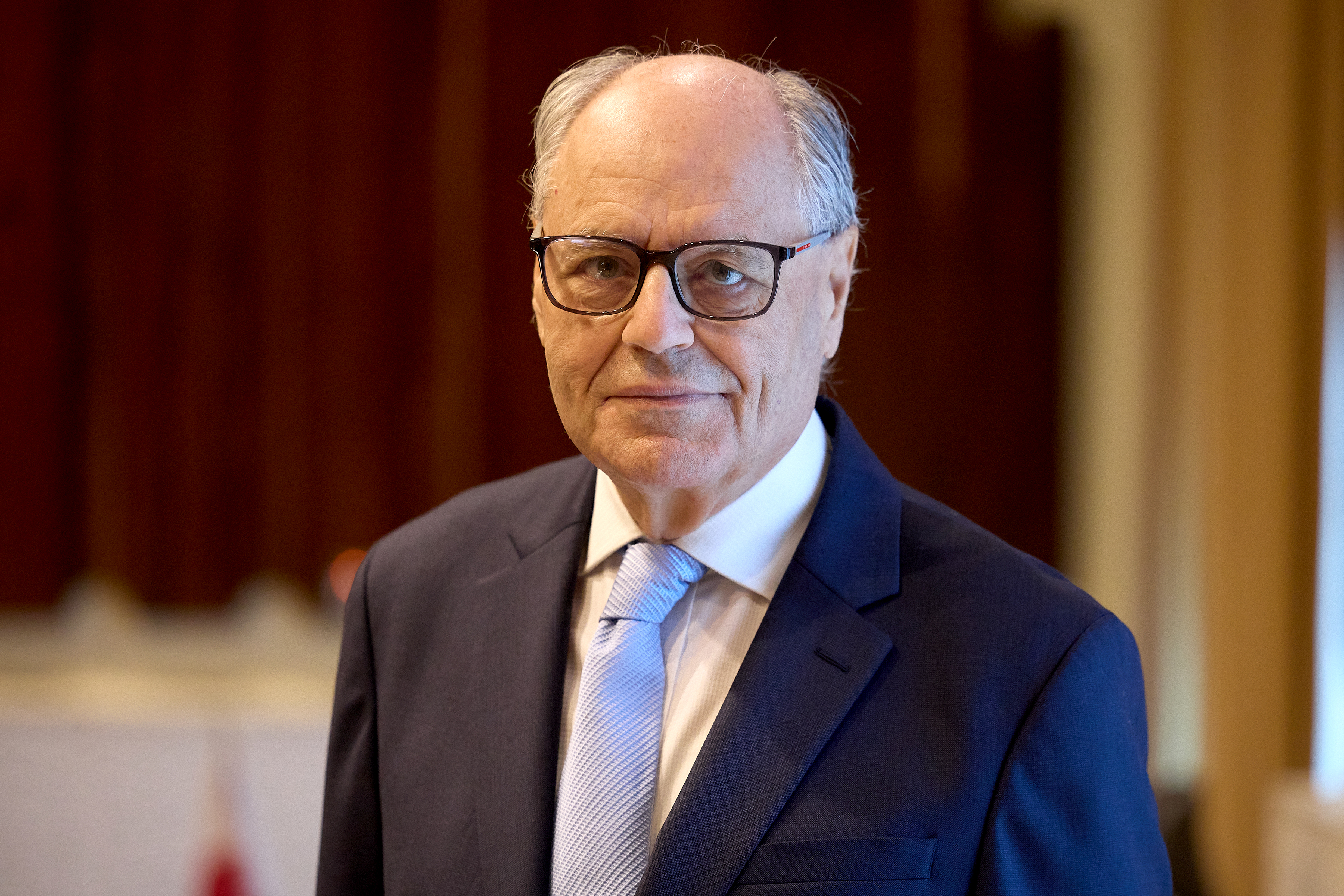Exclusive: ECB’s Scicluna: “There Is No Cut Already in a Box and Just Waiting to Be Unpacked”
16 September 2025

By Marta Vilar and David Barwick – VALLETTA (Econostream) – The European Central Bank’s Governing Council is not planning another interest rate cut, and if the current, delicate balance of inflationary forces still holds in December, the ECB will not ease further this year, according to Council member Edward Scicluna.
In an interview with Econostream (transcript here) on Monday, Scicluna, who heads the Central Bank of Malta, acknowledged upside growth and inflation risks while drawing somewhat greater attention to those on the downside. Still, easing on the possibly erroneous assumption that the latter risks would materialize could entail unintended negative consequences, he argued.
Scicluna expressed some concern about the potential for the euro’s appreciation to undermine European competitiveness, especially if, as he concurred could happen, the US Federal Reserve shifted to the more dovish bias US President Donald Trump was seeking to engender.
“No one said anything in the meeting room about leaving a rate cut for October or December,” he said, referring to last week’s Governing Council meeting. “It’s more appropriate to say that neither October nor December is ruled out.”
The euro area currently finds itself “in a delicate balance as a result of countervailing forces,” he said. “We didn’t think it would be wise to tempt fate, so to speak, by making a preemptive change that could upset this balance.”
The Council’s decision was thus unanimous, he said. “No one expressed disagreement,” he said. “We all agreed to leave rates unchanged and to maintain this state of balance we’re in. There are downside risks, but no one is sure they will materialize, so we have to wait and see.”
Scicluna left no doubt that he agreed with this view, stating that he considered it inadvisable to “meddle at this stage, because of possible downside risks that might not materialize.”
Still, it was not the case that the Council had until coming December to either cut or declare the easing cycle over, he said. Rather, when and whether another cut would come “depends upon this balance between the resilience of the economy and external factors like tariffs and the exchange rate, along with geopolitics,” he said.
“If we see that the balance has clearly tilted, then we would act,” he said. “But not because we’ve committed ourselves; there is no cut already in a box and just waiting to be unpacked. If December comes and we remain in balance, then we won’t move.”
His reference to December was not meant to exclude October, he made clear. At the same time, he said, the updated projections that would become available only at the end of the year would provide clearer support for whatever decision needed making.
“If something significant and obvious happens before October, then we don't need a forecast to make a decision,” he said. “If not, we wait until December and we'll see, based on the forecasts. But we're not committed one way or the other.”
The key issues from today’s perspective were tariffs and the exchange rate, according to Scicluna. The ECB’s latest macroeconomic forecasts assume the Fed will cut rates, but US monetary authorities could exceed those expectations, which could lead to a “more over-valued euro” harming the European economy, he said.
It was “not improbable” that Trump would find a new Fed chair more open to easing, he agreed. “But we did not ignore that at all last week,” he said of a scenario in which this led to euro appreciation that impacted European competitiveness. “It can become quite significant. It will feature, definitely, in our decisions.”
For the moment, however, Scicluna indicated that he personally was firmly in wait-and-see mode. Interest rates were in “broadly neutral” territory and minor departures from the ECB’s 2% target did not automatically warrant reaction, he said.
Were the undershooting of inflation next year no longer to be seen as transitory, “that might be a reason for a cut,” he said. “But small deviations are not a reason to overreact.”
